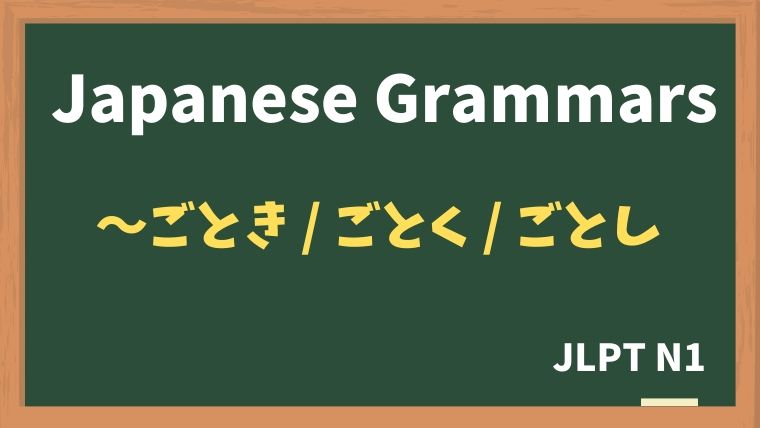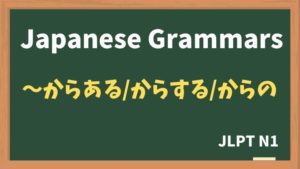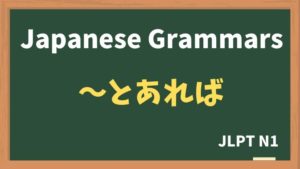
文型:〜ごとき/ごとく/ごとし
fa-check-circleMeaning
① 〜ように
A classical and literary way to say "like" or "as if," and it is used to make comparisons or describe something figuratively. It functions similarly to "〜のようだ" in modern Japanese but has a more formal, old-fashioned tone. This expression is primarily found in written language, classical texts, or formal speech.
② 〜なんかに
Used to show humility or contempt when referring to something or someone, typically with a tone of modesty or disdain, depending on the context. It can be translated as "someone like" or "something like" and is used when the speaker wants to belittle or downplay the importance of the subject or action.
fa-check-circleForm
V(dictionary form / ta from) + かのごとき + N
V(dictionary form / ta form) + かのごとき(文の途中)
V(dictionary form / ta form) + かのごとし。(文の終わり)
Nの + ごとき + N
Nの + ごとく(文の途中)
Nの + ごとし。(文の終わり)
fa-check-circleJLPT Level
N1
例文
1. 〜のように
いつものごとく、トムさんは遅刻して来た。
As usual, Tom showed up late.
彼は風のごとく走る。
He runs like the wind.
彼は何でも知っているかのごとく、いつも自信を持って話す。
He always speaks with confidence, as if he knows everything.
光陰矢のごとし。(proverb)
Time flies like an arrow.
2. 〜なんか
お前ごときに、負けるものか。
There's no way I would lose to someone like you.
私ごときがこんな賞をいただけるなんて、とても嬉しいです。
I'm very happy to receive such an award, even someone like me.
彼ごときに私の気持ちなんかわかるはずがない。
There's no way someone like him could understand my feelings.






